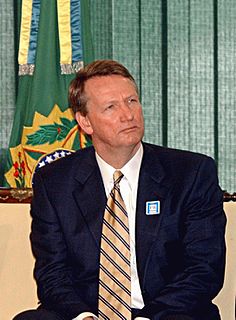A Quote by James Surowiecki
Unlike fuel-economy standards, the most common method of reducing demand for oil over the past thirty years, a gas tax doesn't tell people what kind of car to drive. It simply raises the price of gasoline and lets people adjust their behavior accordingly.
Related Quotes
I do believe that oil production globally has peaked at 85 million barrels. And I've been very vocal about it. And what happens? The demand continues to rise. The only way you can possibly kill demand is with price. So the price of oil, gasoline, has to go up to kill the demand. Otherwise, keep the price down, the demand rises.
About 75% of the price of gas is really dictated by crude oil. At the heart of the issue is increasing demand over a period of many years around the world. World crude oil consumption now is close to 90 million barrels a day. Most of the growth in demand is coming from China and the developing world.
People who are running for office mislead the American people by saying that there's a three-point plan or a bumper sticker kind of way of bringing down gasoline prices. The fact of the matter is that nobody can do that. The price of oil is set on the global economy. People who have looked at this closely and hard know that's the case.
So on the demand side [for energy], there have been a variety of policies that globally have been way over $50 billion a year of tax credits, raising the price of electricity through things like renewable portfolio standards, so the total amount of money that's gone into sending a price signal to push up demand versus what would happen without it has been gigantic.
The way one behaves and feels as a Dutchman and Dutchwoman is the result of a long development. It is by no means 'the natural way' or 'the human way' of behaving, it is a particular code of behavior which has developed over the years. And these people, the immigrant people, come from a group where different standards of conduct and behavior have developed. What clashes are these two standards of conduct and behavior.
Almost all of the demand for oil that suddenly pushed prices up was speculative demand. People began to speculate not only in stocks and bonds and real estate, but also in commodities. The market went up for old tankers, which were used simply to store oil in. A lot of the oil was simply being stored for trading, not used.






























